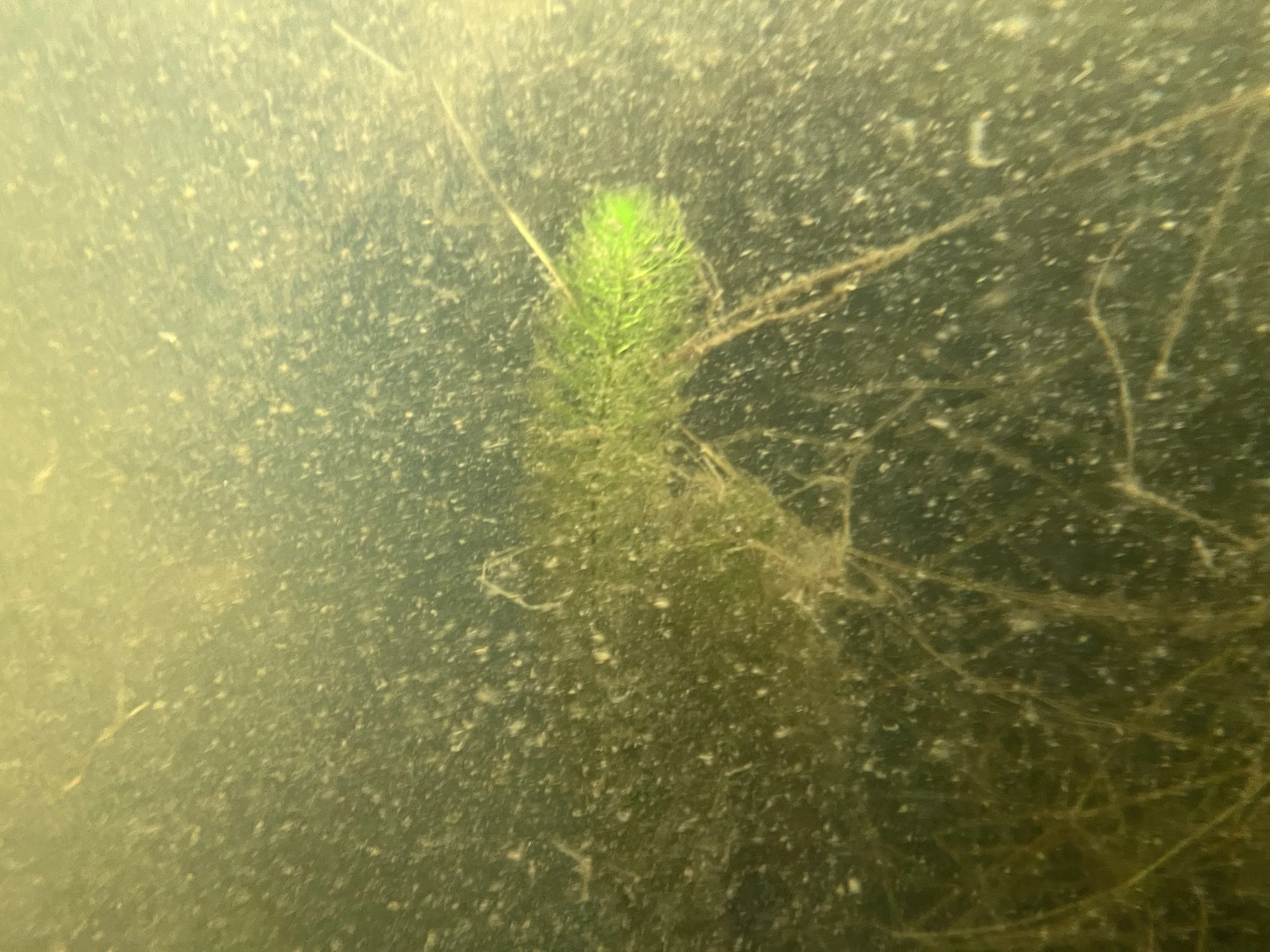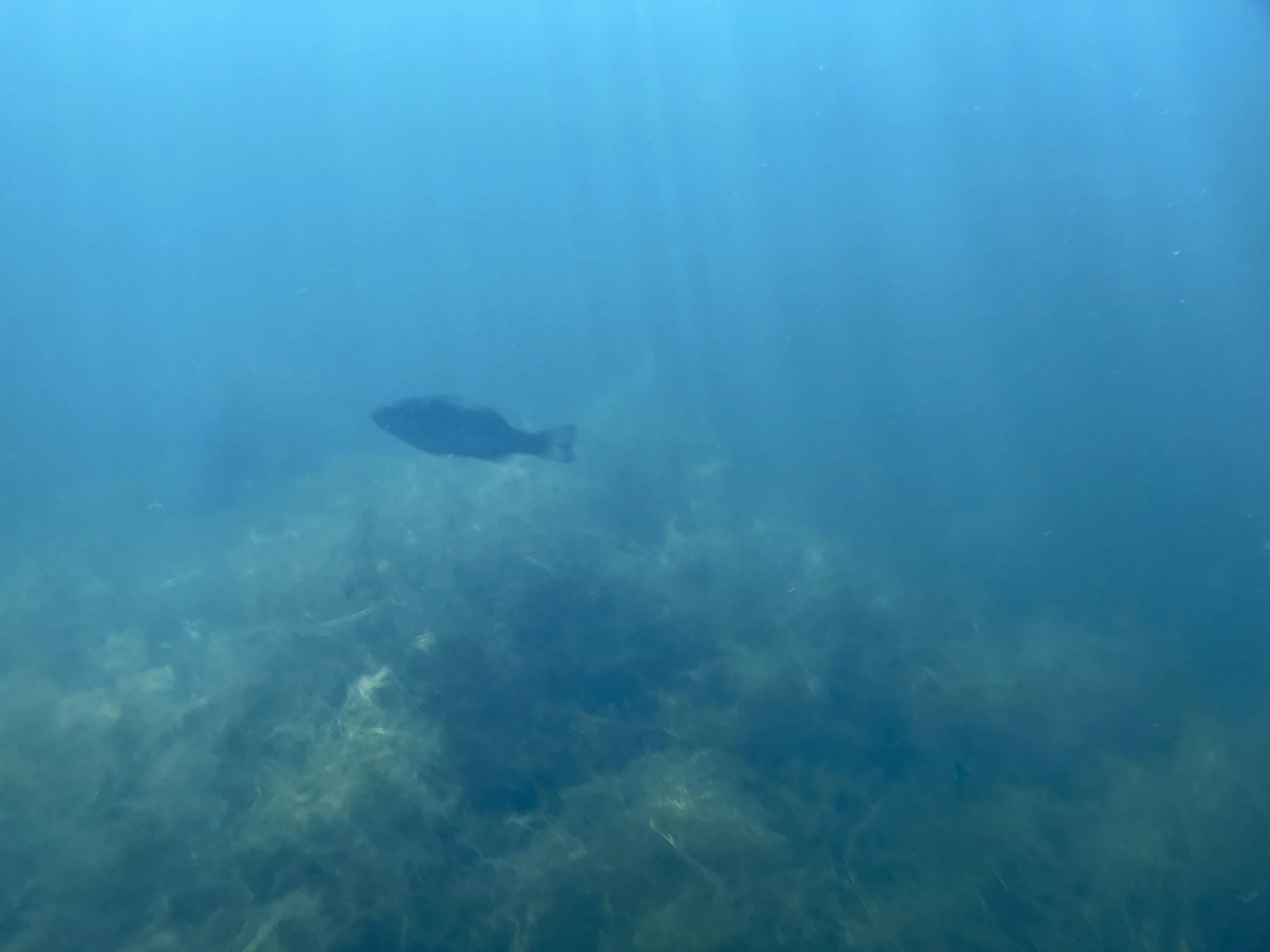I remember when I was a kid, I once wrote an entry in my journal daydreaming about learning to scuba dive. I thought it would be a fantastic experience, in the sense both of something great, and of something out of a fantasy. I was the kid who devoured every sci-fi book I got my hands on, and I yearned for adventures and alien worlds to explore in real life; the underwater world was one of the closer real-life approximations I knew of.
I don’t think I was more than eight or nine back when I wrote that journal entry; it was a long, long time between those daydreams, and the first day I jumped in the pool for my SSI Open Water Diver training with the rest of my AmeriCorps cohort at the Squam Lakes Association. But boy, every dive I’ve done so far has been worth the wait.
I’ll be honest: the type of diving we do at the SLA isn’t the most glamorous thing. We’re there not to see the sights, but to pull invasive variable milfoil, to keep it in check so that the native aquatic plants it chokes out can have a chance. It’s slow, patient work: variable milfoil breaks easily, and it’s one of those plants that can regrow from a broken piece of itself, so you have to handle it carefully as you’re untangling it from the plants around it, to make sure you’re not leaving fragments behind. Furthermore, it grows in soft, mucky, silty sediment on the lake bed, so every time you pull another plant up by its roots you inevitably add at least a little more silt (or, if you’re new and still getting the hang of things, a lot more silt) to the water around you, until you’re in a cloud so thick you can barely see six inches in front of your face. The impulse when you’re learning may be to wave your hands to try to clear it away; this of course stirs up more sediment, worsening the problem. Instead you keep working, with small, quiet movements, and when the cloud around you becomes too thick to keep working, you hold still and add a little air to your vest to raise you up with as little motion as possible, until you can see again and find a new place to get back to work. Not the clear, colorful seascapes I imagined as a kid!
But I also didn’t imagine, as a kid, the sense of almost-euphoria I’d feel at the end of a dive day, that I’d lie in bed at the end of the day exhausted but still remembering that weightless feeling like a dream of flying that actually happened. And remembering all the little glimpses of everyday things, seen suddenly from within their own world instead of glimpsed from above it: the massive school of tiny silver fish that seemed not even to notice my presence, swarming past and around me as if I were just a rock on the lake bed. The small turtle glimpsed scudding along the bottom, burying itself in vegetation before I fully registered its presence. The yellow perch swimming overhead, its bright orange fins flashing; the young chain pickerel hiding motionless in the grasses; the catfish speeding straight for me and only veering off to vanish back into the murk inches before it collided with my arm. The underwater plants growing up in tangled masses to form odd cavernous formations big enough to swim through.
I wasn’t wrong about one thing in my daydreams: this is probably the closest thing to exploring an alien world that I’ve ever experienced. It might not be quite what I used to picture, but I’ve found so many moments of unexpected wonder and beauty on my way.
I still remember word for word—or pretty close—how I ended that old journal entry:
“But if I’m honest, I don’t think I’ll ever do any of that in real life. I’d be too scared.”
That was a mindset I held about far too many things, for far too long, though I wasn’t usually so bluntly honest about it even to myself. It took me a long time to start finding my way out of that mental maze, and I sometimes wish I could go back in time and try to help my younger self along, show them all they’d find themselves capable of when they finally got the courage to try. But of course, even if I’m spending my summer weeding gardens in an alien world, time travel’s still well out of reach. All I can do is take joy in the fact that I’ve found my way here now, and savor every moment of it.
That much, I can do.
One of Cris’ goals is to improve his plant, fish, and bird identifications skills. Read more about him here.



